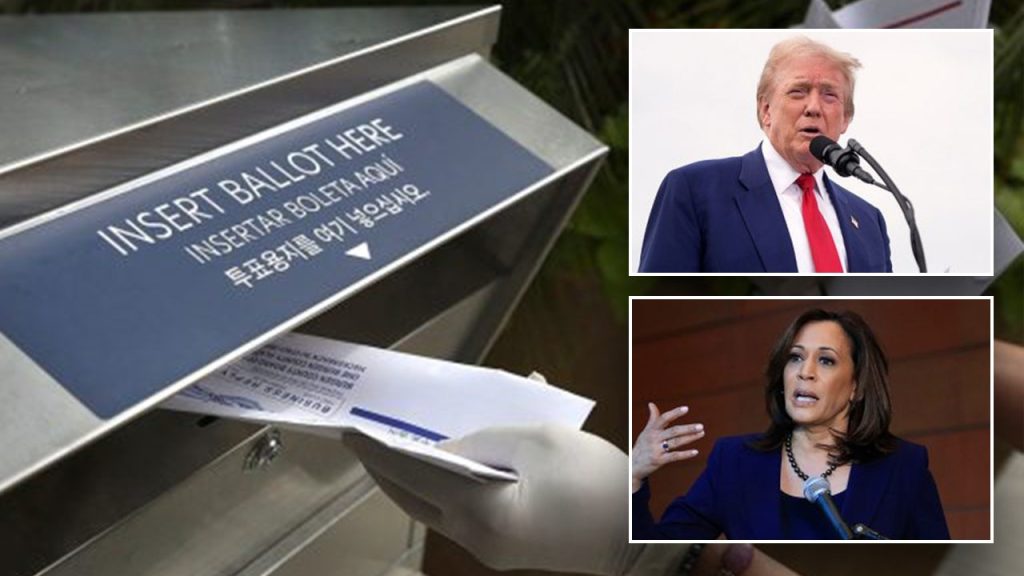The Pennsylvania Supreme Court recently ruled that mail-in ballots without the correct dates on envelopes cannot be counted in elections, potentially impacting the upcoming presidential election. The state’s high court made the decision on procedural grounds, stating that the lower court should not have ruled on the issue without involving all 67 counties. The ruling enforces the requirement that mail-in ballots must be properly dated in order to be counted.
Republicans hailed the ruling as a victory for voter integrity, while voting rights advocates expressed concerns about disenfranchisement. President Joe Biden won Pennsylvania by a significant margin in the 2020 election, and both former President Trump and Vice President Harris have been campaigning in the state recently. The ruling comes after over 800,000 people requested mail-in ballots for the primary election, where nearly 16,000 were disqualified, with almost half being rejected due to missing signatures and incorrect dates.
The decision was supported by RNC Chairman Michael Whatley, who called it a significant win for election integrity. On the other hand, ACLU senior supervising attorney Steve Loney criticized the ruling, stating that eligible voters who submitted their ballots on time should have their votes counted. The ruling was split 4-3, with two Democrats joining the Republican justices on the court. The dissenting justices argued that the court should have taken up the dispute and ruled on the matter based on written briefs.
In the lead-up to the 2020 election, there were legal challenges over mail-in ballots received after election day. Ultimately, the Pennsylvania Supreme Court allowed ballots to be counted if they were received within three days of election day, even if they did not have a legible postmark. The ruling on the date requirement for mail-in ballots comes as both parties are gearing up for a closely contested race in Pennsylvania, a key battleground state with 19 electoral college votes at stake.
The dispute over the correct dating of mail-in ballot envelopes has sparked debate over election integrity and the rights of eligible voters. Republicans and voting rights advocates have divergent views on the ruling, with each side arguing for their interpretation of fair election practices. The decision highlights the complexities of conducting elections in a highly polarized political environment, where every aspect of the process is scrutinized for potential biases or irregularities.
Moving forward, the ruling on mail-in ballot dating in Pennsylvania is likely to have implications for future elections in the state. It remains to be seen how this decision will impact voter turnout and participation, as well as the overall integrity of the electoral process. Both parties are expected to continue monitoring developments related to mail-in voting regulations and enforcement in Pennsylvania, as they navigate the ongoing challenges of running elections in a contentious political climate.


